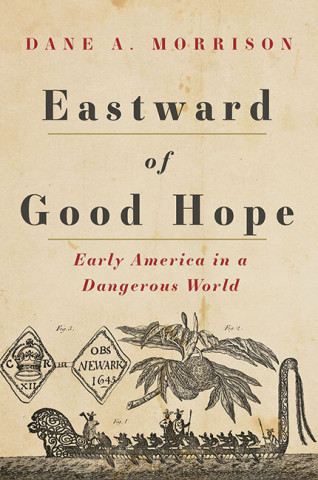
Reviews
Stuart Rollo's Terminus: Westward Expansion, China, and the End of American Empire is a richly kaleidoscopic contribution to the ever-burgeoning literature on US-China relations....Terminus is a versatile book that can be read in multiple registers. Rollo's narrative is especially valuable for the way he weaves four distinct narrative threads together.
In Terminus, Stuart Rollo offers a timely, sweeping historical narrative of US westward expansion and United States–east Asia relations that helps us better understand the contemporary challenges that US policy-makers face regarding China....[Terminus] provides a thought-provoking alternative view of the future, at a moment when the world remains deeply unequal, fractured and violent due to the past and present actions of powerful empires, including the US.
Important, insightful, and timely, this is an extraordinary synthesis of an incredibly comprehensive subject. I could never have imagined it possible to summarize the economic, political, and cultural history of US-Chinese relations over 225 years, yet Rollo has succeeded. The research is impressive, both for its thoroughness and selectivity.
The first book to develop a historical analysis of the American empire through the lens of the US-China relationship, Terminus addresses the most challenging issue in the contemporary world: the great power rivalry between the United States and China. Rollo offers a comprehensive survey of the rivalry, entanglement, and decoupling of the United States and China in global trade, investment, and production as well as the growing role of China in undermining the US empire in such areas as capital formation, technology innovation, and global production and supply chains.
Narrating the rise and decline of the American empire through the prism of US-China relations, Stuart Rollo has written a succinct, sophisticated, and hard-hitting critique. The appearance of Terminus could not be more timely—nor or its contents more worrisome.
Book Details
Acknowledgments
Introduction
Part I. Westward Expansion and the Commercial Origins of Empire
Chapter One. The Long March Westward and Native Dispossession
Chapter Two. The China Focus in Westward
Acknowledgments
Introduction
Part I. Westward Expansion and the Commercial Origins of Empire
Chapter One. The Long March Westward and Native Dispossession
Chapter Two. The China Focus in Westward Expansion
Chapter Three. A Colonial Empire
Part II. Ascending Power to Unipolarity, 1914–1991
Chapter Four. The 30 Years Crisis
Chapter Five. American Hegemony
Chapter Six. War with Asia, Recession, and Resurgence
Part III. From a Unipolar Global Empire to a Shrinking Exploitative Hegemony
Chapter Seven. The Unipolar Moment and Imperial Hubris
Chapter Eight. The Sleeper Awakes: China's Rise as a World Historical Moment
Chapter Nine. Trump, Biden, and Trouble Ahead
Conclusion
Notes
References
Index






